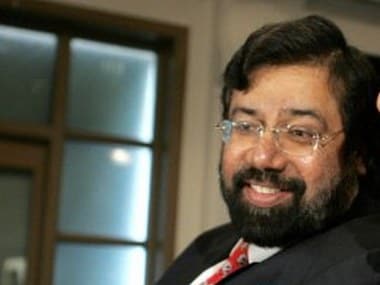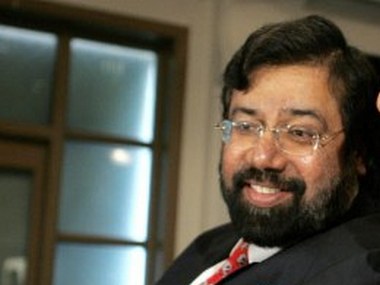Here’s the exception that proves the rule. Last week, Sanjiv Goenka, second son of patriarch RP Goenka, created a new brand identity for the companies under his charge styled RP Sanjiv Goenka Group, which will include CESC Ltd, Phillips Carbon Black, Spencers Retail, and Saregama, the music company.
Taken together with the untangling of shareholdings last year, the new brand identity formalises Sanjiv’s physical separation from the companies run by his elder brother Harsh Goenka - Ceat Tyres, KEC International, Zensar (IT) and RPG Life Sciences (pharma).
Ho-hum. Brothers carving up the family business between themselves is nothing new. Business tycoons emotionally want their progeny to run their inheritance together. The sons (and sometimes daughters) want their own piece of cake.
But this week, Harsh Goenka offered a new twist to the usual story of family business splits. He went on record to say that neither he nor his brother wanted the split, but his father wanted it. He told Bloomberg UTV in an interview: “It (the split) is something that my father desired; neither my brother Sanjiv nor I wanted it to happen; and it was literally thrust upon us…He has been telling us over the last two years, but we have been resisting it. But a day came when he made it a fait accompli…”
[caption id=“attachment_43045” align=“alignleft” width=“380” caption=“This week, Harsh Goenka offered a new twist to the usual story of family business splits. Sebastian D’souza/AFP”]
 [/caption]
[/caption]
It’s rare to see such candour, but this clearly establishes RP Goenka as the visionary in the family. The problem with family-run businesses has always been the same: the old man will want to run the company (or companies) he created till kingdom come. When he can’t continue, he will want his sons (daughters) to run them as one unit till sibling rivalry convinces him otherwise by reaching breakpoint. This happens either within his own lifetime or after. And the business splits.
Impact Shorts
More ShortsThe whole of the 1980s and 1990s saw numerous family splits, some of them distressingly in public view. From the Piramals to the Khataus to the Mafatlals, Singhanias, Thapars and Birlas, most family splits came with heartburn, and almost at the point when it seemed likely to blow up into a public spat between sons.
The mother of all succession battles happened between 2005 and 2010 when India’s (arguably) biggest post-liberalisation success merchant - Dhirubhai Ambani - carelessly left his business in Mukesh Ambani’s effective hands without a clear will. He left it all to big brother, and we know how that battle went. It is now on the mend, but largely because younger brother Anil lost his battle to get Reliance gas in the Supreme Court and also has fewer resources to fight his battles with.
The Goenka split was one of those rare events - even before RP Goenka split his businesses between his two sons, his own father had done the same with his two brothers - where the problems were anticipated and dealt with before they could fester and ruin family relationships.
It is thus surprising that Harsh and Sanjiv took so long to realise the wisdom embedded in the family from their grandpa’s days and were in no hurry to divide the group formally.
The good thing is, says Harsh Goenka, it has happened “when there is so much of love, affection within the family. The bad thing is it’s now almost two groups; so one doesn’t feel good about (it),” he said in the Bloomberg UTV interview.
What Goenka may have missed is the paradox: good fences make for good neighbours. Clean separation is what ensures good family ties. Businessmen who have acknowledged this paradox for what it is worth have never looked back. Those - like Dhirubhai Ambani - who did, have managed to create enmity between their own progeny.
)